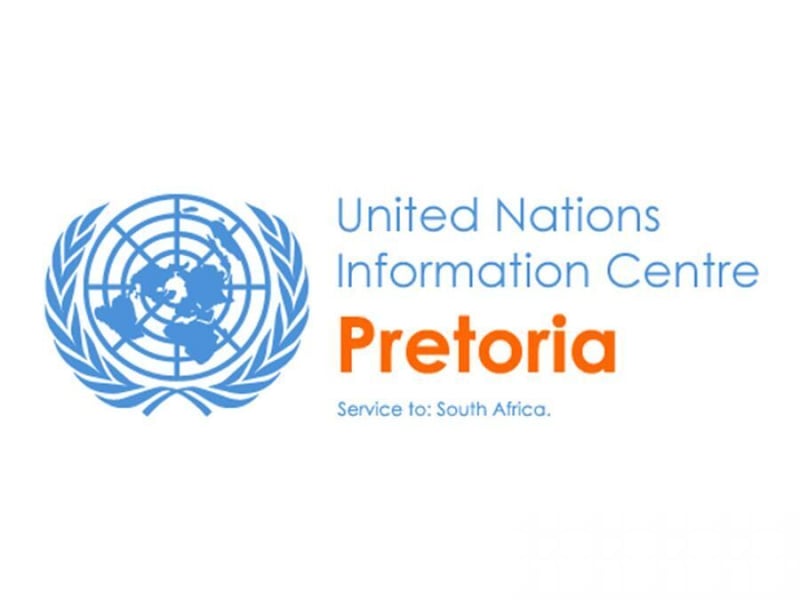Budget 2018 - UNICEF South Africa highlights its implications for children
Written by: MyPressportal Team Save to Instapaper
More than R1.2 billion has been aside to combat violence against women and children and to smooth transfers to social welfare NGOs that deliver critical services
PRETORIA, South Africa, February 23, 2018/ --
UNICEF South Africa acknowledges the South African Government’s commitment to ensuring a balance between financial stability and ensuring the progressive realisation of children’s social and economic rights.
UNICEF is pleased to note that total government expenditure is projected to increase by an average of 1.9 per cent in real terms over the Medium-Term Expenditure Framework (MTEF) period and spending on some of the services that benefit children will grow faster than overall expenditure over the next three years. This means that transfers to non-profit organisations (mainly to deliver education and child and social welfare services) will increase by 5.3 per cent, household transfers will increase by 4.7 per cent. In addition, the child support grant and child care and dependency grant will increase by around 3 per cent, and overall spending on the social development and health sectors will increase by 2.3 per cent. At the same time, more than R1.2 billion has been aside to combat violence against women and children and to smooth transfers to social welfare NGOs that deliver critical services at the provincial and district levels. This is indicative of the government’s vision that linking cash to the poorest and most marginalised children combined with intensified care and protection is likely to deliver larger and positive social benefits. While these developments are encouraging, UNICEF is concerned about specific funding challenges for child-focused services, which may impact the realisation of children’s social and economic rights. Some of these include:
- Funding cuts to provincial baseline budgets, thus increasing pressure on service delivery departments to reduce essential services for children;
- Limited support to expand early childhood development services and less financing of NPOs;
- Reduced capital investments in education and health at the provincial level, which may delay the roll-out of direly-needed infrastructure in under-resourced areas;
- Unpaid provincial bills, especially in the health sector, which, given the country’s current health challenges, remain a concern.In view of the budget challenges, we welcome the reference that was made in the State of the Nation Address for the corporate sector to complement government spending on child care and social services for children to enhance an accelerated investment in human capital over time.
Recognising that investment in children’s services takes time to produce tangible results, UNICEF stands ready to assist the government, civil society and corporate sector to better the lives of children in South Africa.
Distributed by APO Group on behalf of UN Information Centre in Pretoria (UNIC)
Get new press articles by email
We submit and automate press releases distribution for a range of clients. Our platform brings in automation to 5 social media platforms with engaging hashtags. Our new platform The Pulse, allows premium PR Agencies to have access to our newsletter subscribers.
Latest from
- Afda Caps Off 2025 With Major Growth Innovation And Expansion Across Campuses
- Rand Firms Against Dollar As Gold Shines And Investor Focus Turns To Final 2025 Economic Releases
- Dunlop Urges Motorists To Prioritise Tyre Safety Ahead Of Busy December Drives Between Joburg And Durban
- Ford Territory Dark Edition Put To The Test For Real-World Fuel Efficiency In The Midsize SUV Segment
- SAA Introduces Year-Round Cape Town Mauritius Service To Boost Tourism And Trade
- Critics Spotlight The Films That Shaped 2025 And Marked A New Era In Cinema
- Menlyn Park Sets The Scene For A Magical Festive Season With New Stores And Family-Friendly Activities
- Chilliengine Celebrates Gold Pendoring Award Win For Immersive Cultural Brand Experience
- G20 Engagements Highlight Pathways For South African Social Investors To Accelerate Inclusive Growth
- Samsung UK Unveils Cinematic Christmas Film Showcasing Galaxy AI In Family Life
- APO Group Names Diego Moriondo Chief Marketing And Communication Officer For SECAM Volunteer Programme
- AfDB Approves $316m To Help Morocco Modernise Key Airports Ahead Of 2030 World Cup
- Eskom Unbundling Sparks A Solar Moment As Businesses Eye Competitive And Greener Power Solutions
- Pinterest Enters Connected TV Advertising To Help Marketers Measure TV Impact On Performance Campaigns
- IATA Highlights Strong Air Traffic Growth In Africa Amid Ongoing Profitability Challenges For Airlines
The Pulse Latest Articles
- Education Is The Frontline Of Inequality, Business Must Show Up (December 11, 2025)
- When The Purple Profile Pictures Fade, The Real Work Begins (December 11, 2025)
- Dear Santa, Please Skip The Socks This Year (December 10, 2025)
- Brandtech+ Has 100 Global Creative Roles For South African Talent (December 9, 2025)
- The Woman Behind Bertie: Michelle’s Journey To Cape Town’s Beloved Mobile Café (December 9, 2025)
